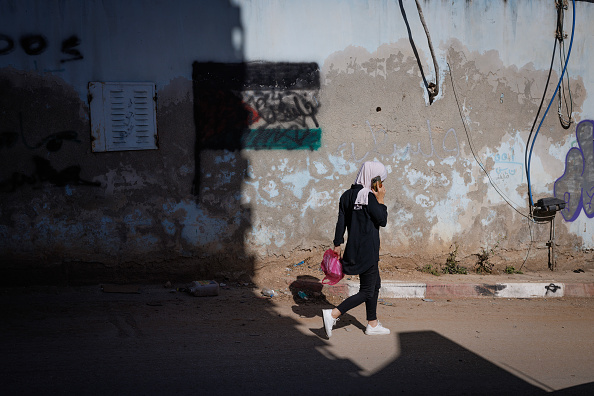A total of 39 Palestinian detainees have been freed from Israeli incarceration as part of the hostage exchange agreed between Israel and Hamas.
The release of 24 Palestinian women and 15 minors from prison marks the first prisoner exchange amid a temporary ceasefire.
After the seven-week Israeli bombing, a four-day truce began on Friday morning, the culmination of weeks of diplomacy mediated by Qatar, Egypt, and the US.
Israel has agreed to release 150 Palestinian women and children — from a 14-year-old boy to a 59-year-old grandmother — from its jails in exchange for Hamas releasing 50 of its captives. Hamas released 24 hostages on the first day of the ceasefire.
While Western media has focused on Israeli hostages, many have drawn attention to the longstanding issue of Palestinian women and minors detained in jails by Israel.
For decades, Israel has imposed strict security controls in the occupied West Bank and East Jerusalem.
Arrest raids and crackdowns on protests were commonplace even before the recent Gaza conflict erupted. The tough approach has netted people for offences that include social media posts and “incitement.”
Following the release of the detainees, the Israeli military attacked Palestinians who were celebrating those returning home.
The Israeli military fired tear gas, stun grenades, and possible live ammunition at crowds in the West Bank, according to Sky News.
Around 14,000 Palestinians have been killed in Israel’s bombardment of Gaza and ground offensive last month. The Israeli military is preparing to resume operations when the temporary truce concludes.
The Palestinian women and children incarcerated
When the ceasefire deal was announced, Israel published a list of 300 Palestinian women and children held in Israeli prisons.
All but four on the list are from the West Bank and Jerusalem.
Arrested between 2021-2023, most of them are teenage boys – 40% under the age of 18. The list also includes one teenage girl and 32 women.
Stone-throwing, property damage, and alleged contacts with “hostile” groups make up common charges. More serious accusations include stabbings and explosives offences.
Less than a quarter have actually been convicted, with most held indefinitely on remand before trial.
Many prisoners face administrative detention based on secret evidence, enabling indefinite renewals without charge or trial. Some have been jailed for years without knowing their alleged crimes.
Detention periods can reach 20 years for minors throwing stones.
“The main alleged crime for these detentions is stone-throwing, which can carry a 20-year sentence in prison for Palestinian children,” a report published in July by children’s rights organisation Save the Children said.
According to the organisation, Palestinian children in Israeli detention frequently endure abuse – including physical, psychological, and sexual mistreatment. Some reportedly suffer deprivation of necessities like food, water, and sleep.
According to the Palestinian Prisoners Society, over 7,200 Palestinians are currently held in Israeli prisons. This includes 88 women and 250 children under 18.
The plight of detainees is a pivotal issue, with at least 40% of Palestinian men spending time in Israeli jails.
















